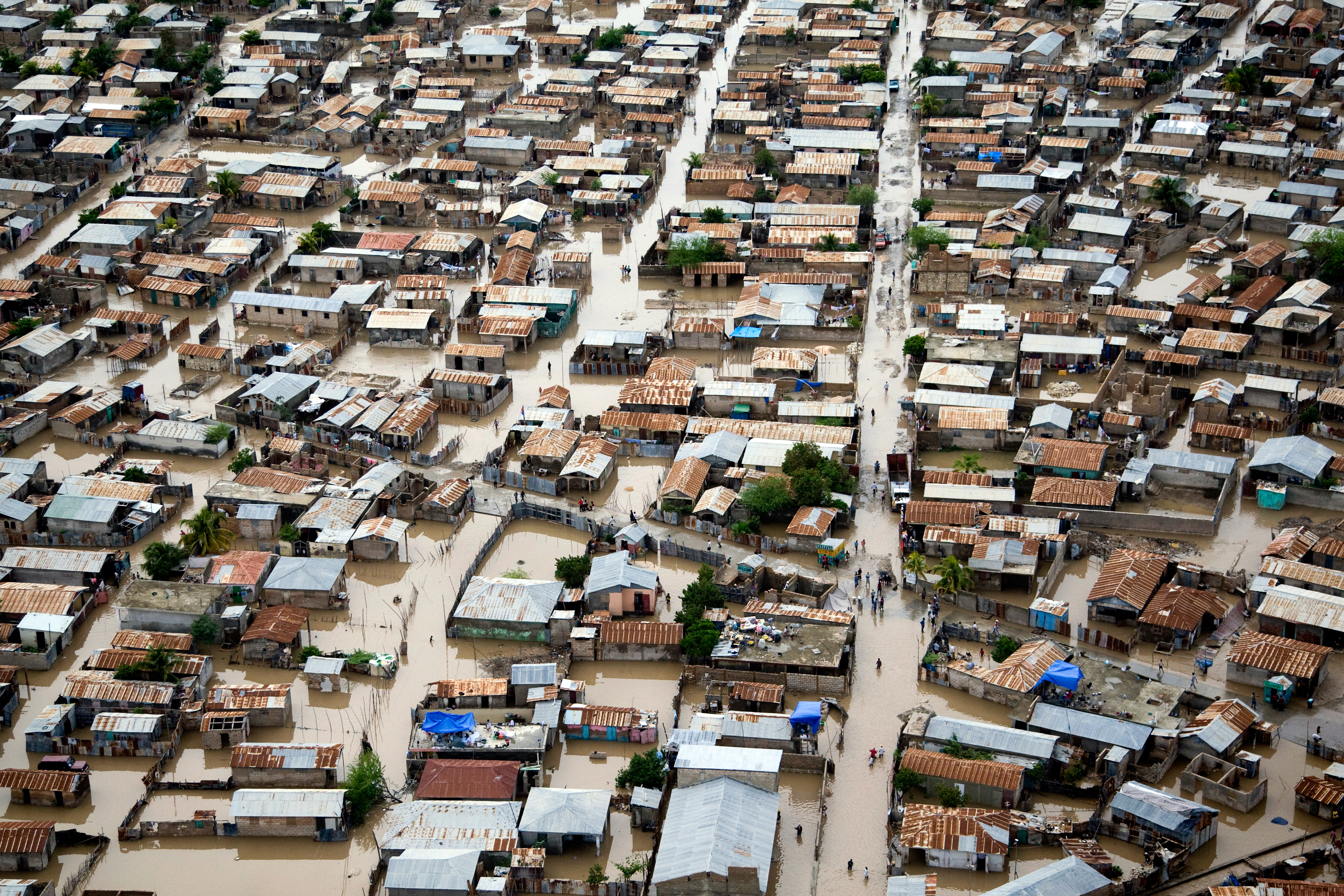Flooded roads and paths in Gonaives, Haiti, after hurricane Tomas passed through the area
Copyright© UN Photo/UNICEF/Marco Dormino, via flickr, CC BY-NC-ND 2.0
Adaptation to climate change German Development Ministry and Potsdam Institute for Climate Impact Research (PIK) deepen their cooperation
State Secretary Jäger stated: “The developing countries, which have contributed least to climate change, are already the worst affected by its consequences. Climate change mitigation and adaptation are therefore key tasks for development policy. If our development planning and investment efforts are to be sustainable and climate-proof, we and our partners need analyses of current and future climate risks. Our cooperation with PIK, one of the world's leading scientific institutions in the area of climate research, will significantly improve the basis for this.”
Professor Rockström added, “The science is clear that weather extremes are on the rise across the globe – from droughts to floods, increasing the risk of crop failures and even violent conflict. In order to help build a safe future for all, we're very glad to be able to provide scientific advice to the BMZ. This collaboration is of strategic importance. Living conditions and development potential are changing so fast that deeper science-policy interactions are critical and can together achieve sustainable change, with positive outcomes for all.”
According to a World Bank study, climate change might push an additional 100 million people into extreme poverty by 2030. Climate change poses a threat to development gains already made and to gains yet to be achieved. And ambitious climate action means great potential benefits for economic and social development, innovation and viable jobs.
The primary focus of the deepened cooperation between the BMZ and PIK (AGRICA project) is adaptation to climate change in developing countries. In order to make development sustainable and protect natural resources and livelihoods, systematic strategies for adaptation and enhanced resilience need to be developed. The purpose of the cooperation between the BMZ and PIK is therefore the systematic development of knowledge in partner countries with regard to the interface between climate and development, and to help build capacity on the ground for policy-relevant research.
The practice-oriented studies and climate risk assessments to be drawn up as part of the collaborative endeavour are intended to provide the BMZ and its local partners with detailed information and the latest scientific findings on the impacts of climate change and to help identify locally appropriate options for action that can also be used in European cooperation programmes with Africa. As part of the AGRICA project, the BMZ has committed more than three million euros for the work of the partnership in the years 2018 to 2023.
The Berlin Insights Series on Climate Change and Development, which is organised jointly by the BMZ and PIK and takes place once a year, provides more detailed insights into the cooperation programme between the BMZ and PIK. The Series serves as a forum for dialogue among policymakers, scientists and practitioners, with a view to fostering exchange about the challenges of climate change in the Global South. The first session on 20 January was entitled From climate science to climate action: Climate-proofing African-European cooperation. Representatives of the African Union, the European Union and academic and development organisations discussed issues pertaining to European-African cooperation on climate risks and adaptation options in sub-Saharan Africa.
